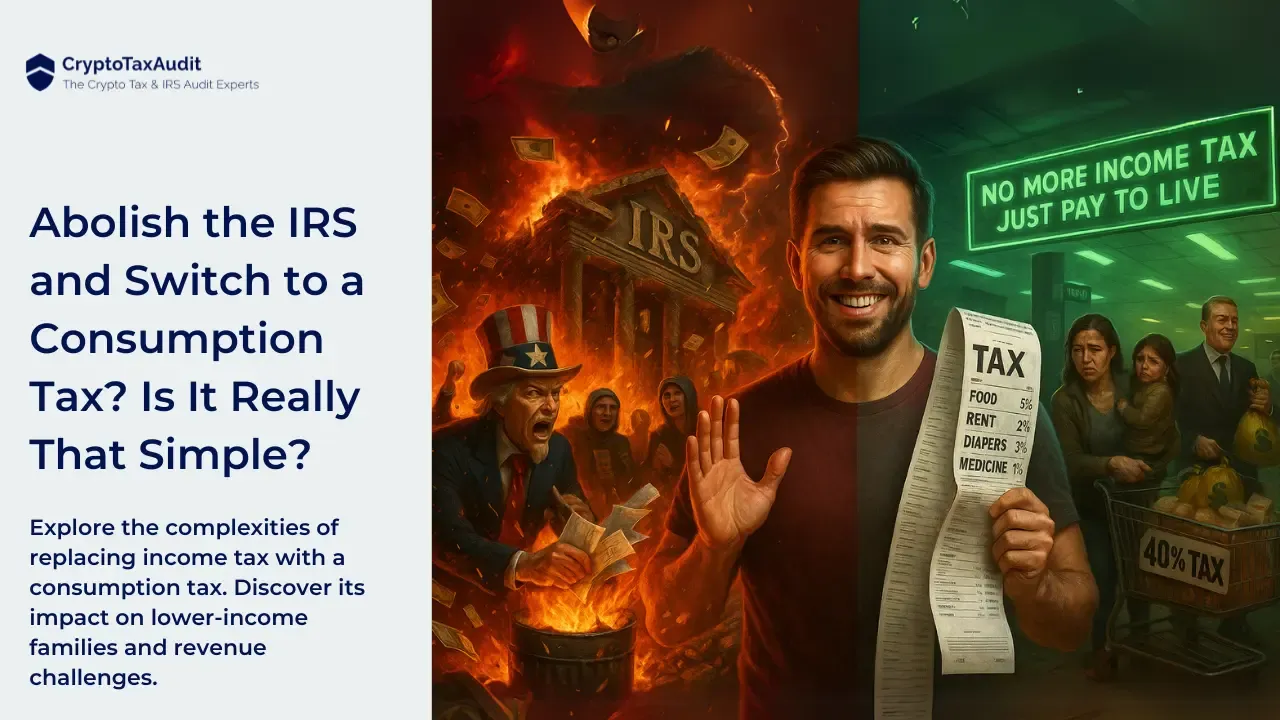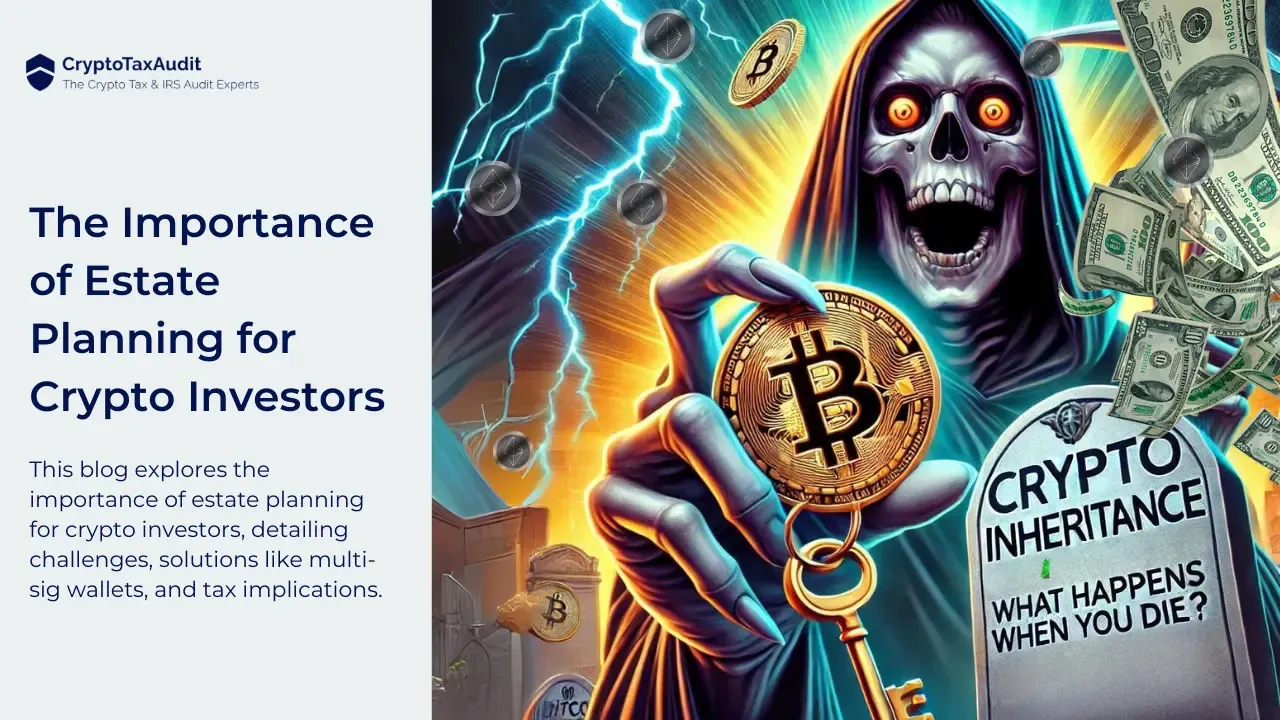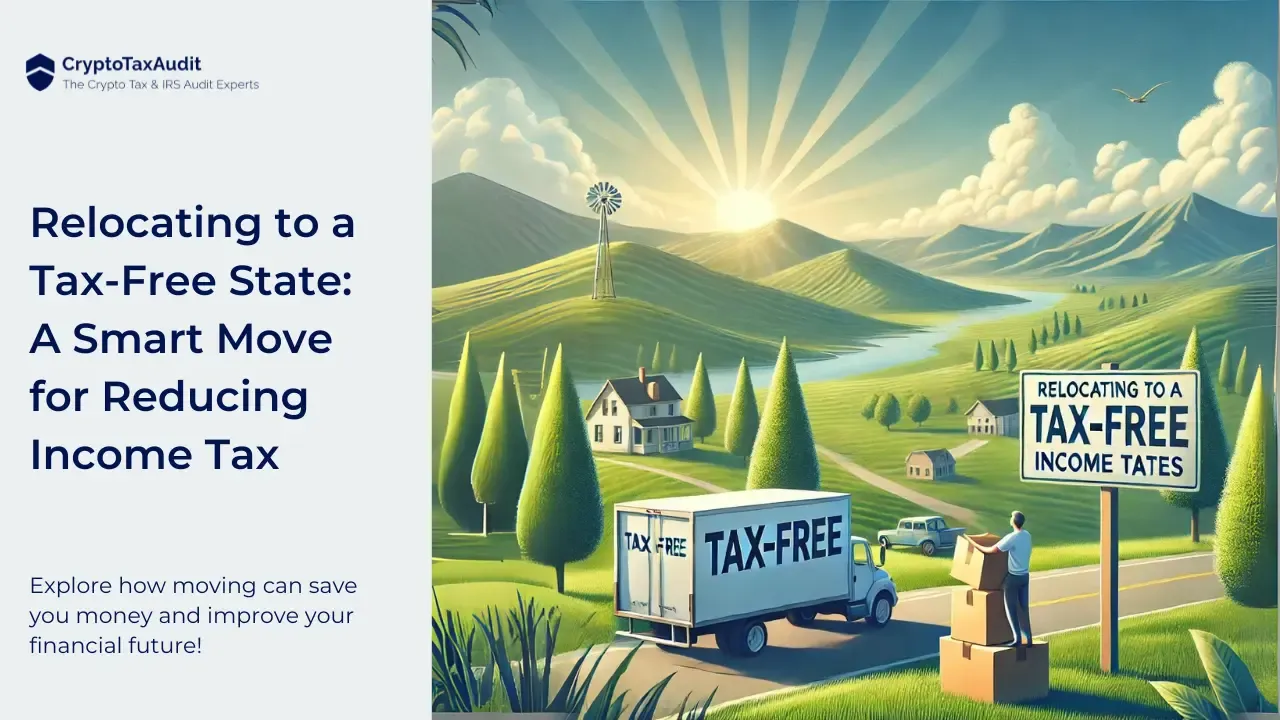
Abolish the IRS and Switch to a Consumption Tax? Is It Really That Simple?
There’s been a lot of chatter lately about abolishing the IRS and replacing income tax with a consumption tax.
It sounds simple enough, right?
No more income tax forms, no more IRS audits—just a straightforward tax on what you spend.
But is it really that simple?
Spoiler alert: It’s not. Let’s break it down.
A Quick History Lesson
Before income tax, the U.S. government made most of its money through tariffs, excise taxes, service fees, and other charges.
That worked…until it didn’t.
When big expenses like the Civil War and World War I came along, those revenue streams just couldn’t keep up.
Enter the income tax, designed to spread the tax burden fairly by asking higher earners to pay more while giving lower-income folks some breathing room.
That’s been the backbone of our tax system ever since.
The Case for a Consumption Tax… and the Problems
A consumption tax, like the VAT used in Europe, is like a sales tax on steroids.
You only get taxed on what you buy.
Sounds fair, right? Not so fast.
- It Hits Lower-Income People Harder: Lower-income families spend most of what they earn on necessities like rent, food, and transportation. That means they’d feel the brunt of a consumption tax far more than wealthier folks, who can afford to save and invest much of their income.
- Savings and Investments Get a Free Pass: Wealthier individuals, who spend proportionally less of their income, would end up paying less tax overall. Meanwhile, their savings and investments—which wouldn’t count as consumption—wouldn’t be taxed at all.
- Goodbye, Tax Credits: Currently, about 45-47% of U.S. taxpayers effectively pay no income tax thanks to credits like the Earned Income Tax Credit and Child Tax Credit. Under a consumption tax system, these credits disappear. That means people who’ve relied on those breaks to make ends meet would suddenly face higher tax bills.
Revenue Challenges
Here’s the other problem: Would a consumption tax bring in enough money? History suggests otherwise.
Excise taxes and fees couldn’t cover the government’s needs in the past, especially during times of economic crisis.
A consumption tax might have the same issue, particularly during recessions when people spend less.
The Bottom Line
Replacing income tax with a consumption tax sounds great in theory, but the reality is far more complicated.
It would disproportionately affect lower-income families, create loopholes for wealthier individuals, and could leave the government with unstable revenue streams.
Instead of scrapping the current system, maybe we should focus on fixing what we already have.
Simplify the tax code.
Close loopholes.
Make it fairer.
That’s the kind of change that could actually make a difference.
If you’re feeling overwhelmed by taxes—whether it’s crypto-related or not—we’ve got your back.
At CryptoTaxAudit, we specialize in making the complex simple, so you can focus on what really matters: your investments.
Ready to take control? Contact CryptoTaxAudit.com and let’s get started.
Related Articles: Why Crypto Traders NEED CryptoTaxAudit Defense Before It’s Too Late



